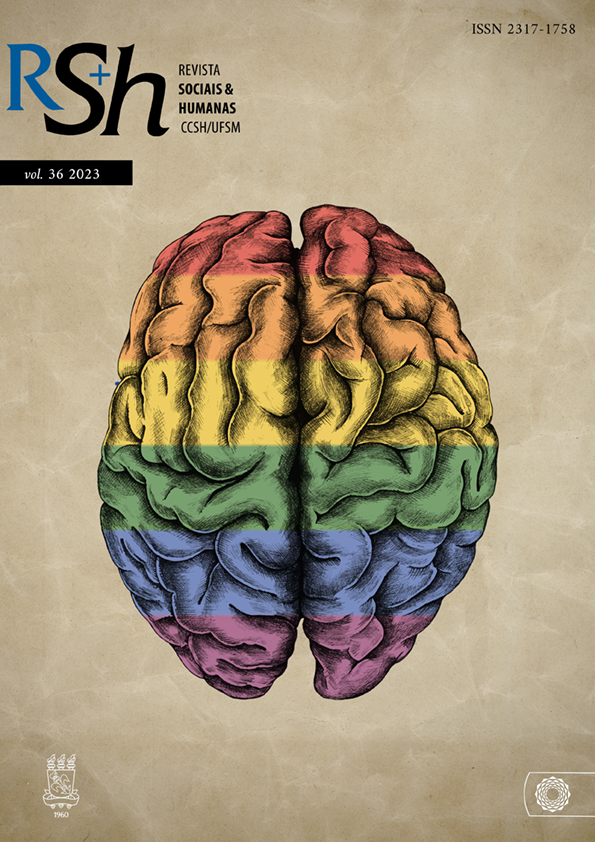On the other side of the inverted world: the media convergence in the disclosure of Stranger Things in social media
DOI:
https://doi.org/10.5902/2317175847893Keywords:
Media, Affective economics, Participatory culture, Crossmedia, TransmediaAbstract
The aim of this article is to study the media convergence in the launch actions of the series Stranger Things in Brazil, in the social media Twitter and Facebook. For that, the contents published on Facebook of Stranger Things Brazil and on Twitter of Netflix will be described in the occasion of the launching of the series in Brazil; will be identified in what form the media convergence happens through the contents; and it will be understood how the culture of convergence has its effects on the production of contents for the divulgation of the series in digital social media. The methodology of this research is qualitative, with content analysis and descriptive analysis of the posts collected on Facebook and Twitter about Stranger Things. As results, there was a direct dialogue between the content of social media and plot and characters, there are more cases of cross media than of transmedia and the affective relationship of the followers with the content of the series is used.
Downloads
References
AQUINO, Maria Clara. Redes sociais como ambientes convergentes: tensionando o conceito de convergência midiática a partir do valor visibilidade. In: IV Simpósio Nacional ABCiber, 2010, Rio de Janeiro, eixo temático “Redes Sociais, Comunidades Virtuais e Sociabilidade”. Rio de Janeiro: ECO/UFRJ, 2010. Disponível em: https://www.academia.edu/11929832/Redes_Sociais_como_ambientes_convergentes_tensionando_o_conceito_de_converg%C3%AAncia. Acesso em: 13 mar. 2018.
ARAÚJO, João Eduardo; ROSAS, Inara de Amorim. O caminho do meistre: o projeto transmídia do seriado televisivo Game Of Thrones. In: Simpósio em tecnologias digitais e sociabilidade – simsocial, 2012, Salvador. Práticas Internacionais em Rede, Salvador: 2012. Disponível em: http://www.simsocial2012.ufba.br/modulos/submissao/Upload/44910.pdf. Acesso em: 13 mar. 2018.
BUONANNO, Milly. Uma eulogia (prematura) do broadcast: o sentido do fim da televisão. Matrizes, São Paulo, v. 9, n. 1, p. 67-86, jan./jun. 2015. Disponível em: http://www.redalyc.org/pdf/1430/143039560005.pdf. Acesso em: 20 mar. 2018.
COMO funciona o streaming. SITEHOSTING by JMV Technology, [S. l.], 2018. Disponível em: https://www.sitehosting.com.br/como-funciona-o-streaming/. Acesso em: 17 set. 2018.
GODOY, Arilda Schmidt. Pesquisa qualitativa: tipos fundamentais. Revista de Administração de Empresas, São Paulo, v. 35, n. 2, p. 57-63, 1995. Disponível em: http://www.scielo.br/pdf/rae/v35n3/a04v35n3.pdf. Acesso em: 22 maio 2018.
HERMANN, Letícia. A convergência midiática e as mudanças comportamentais no consumo do mercado de nicho: Netflix e a “desmaterialização” dos produtos. Animus, Santa Maria, v.11, n.22, p. 222-245, 2012. Disponível em: http://dx.doi.org/10.5902/217549777080. Acesso em: 13 mar. 2018.
JENKINS, Henry. Cultura da convergência. São Paulo: Aleph, 2008.
JENKINS, Henry. Invasores do texto: fãs e cultura participativa. Nova Iguaçu, RJ: Marsupial, 2015.
LEMOS, André. Cibercultura: tecnologia e vida social na cultura contemporânea. 6 ed. Porto Alegre: Sulina, 2013.
LÉVY, Pierre. Inteligência coletiva: para uma antropologia do ciberespaço. São Paulo: Loyola, 2007.
MCLUHAN, Marshall. Os meios de comunicação como extensões do homem. São Paulo: Cultrix, 1969.
MICHEL, Maria Helena. Metodologia e pesquisa científica em ciências sociais. 3.ed. São Paulo: Atlas, 2015.
MONTEIRO, Camila. Fandom: cultura participativa em busca de um ídolo. Anagrama, São Paulo, v.4, n.1, p. 1-13, 2010. Disponível em: https://www.revistas.usp.br/anagrama/article/view/35481. Acesso em: 15 abr. 2018.
NETFLIX: base de usuários cresce 25% e serviço passa a valer US$ 100 bilhões. Canaltech, [S. l.], 23 jan. 2018. Disponível em: https://canaltech.com.br/resultados-financeiros/netflix-base-de-usuarios-cresce-25-e-servico-passa-a-valer-us-100-bilhoes-107028/. Acesso em: 23 maio 2018.
NOVA temporada de Stranger Things agrada público e faz sucesso nas redes sociais. AIRFLUENCERS, São Paulo, n.p., 01 outubro 2017. Disponível em: https://blog.airfluencers.com/blog/nova-temporada-de-stranger-things-agrada-publico-e-faz-sucesso-nas-redes-sociais/. Acesso em: 07 jul. 2023.
SILVEIRA, Stefanie. A cultura da convergência e os fãs de Star Wars: um estudo sobre o conselho Jedi RS. 205f. 2009. Dissertação (Mestrado em Comunicação e Informação) – Universidade Federal do Rio Grande do Sul, Porto Alegre, 2010. Disponível em: http://hdl.handle.net/10183/25129. Acesso em: 13 mar. 2018.
STAIGER, Janet. Fans and fans behaviors. New York: New York University Press, 2005, p. 95-114.
VALENTE, Jonas. Relatório aponta Brasil como quarto país em número de usuários de internet. Agência Brasil, Brasília, 03 out. 2017. Geral, n.p. Disponível em: http://agenciabrasil.ebc.com.br/geral/noticia/2017-10/relatorio-aponta-brasil-como-quarto-pais-em-numero-de-usuarios-de-internet. Acesso em: 02 mar. 2018.
ZEISER, Anne. Transmedia Marketing. London: Focal Press, 2015.
Downloads
Published
How to Cite
Issue
Section
License
Copyright (c) 2023 Revista Sociais e Humanas

This work is licensed under a Creative Commons Attribution-NonCommercial-ShareAlike 4.0 International License.
Os direitos autorais para artigos publicados nesta revista são do autor, com direitos de primeira publicação para a revista. Em virtude de aparecerem nesta revista de acesso público, os artigos são de uso gratuito, com atribuições próprias, em aplicações educacionais e não-comerciais. A revista permitirá o uso dos trabalhos publicados para fins não-comerciais, incluindo direito de enviar o trabalho para bases de dados de acesso público. Os artigos publicados são de total e exclusiva responsabilidade dos autores.


